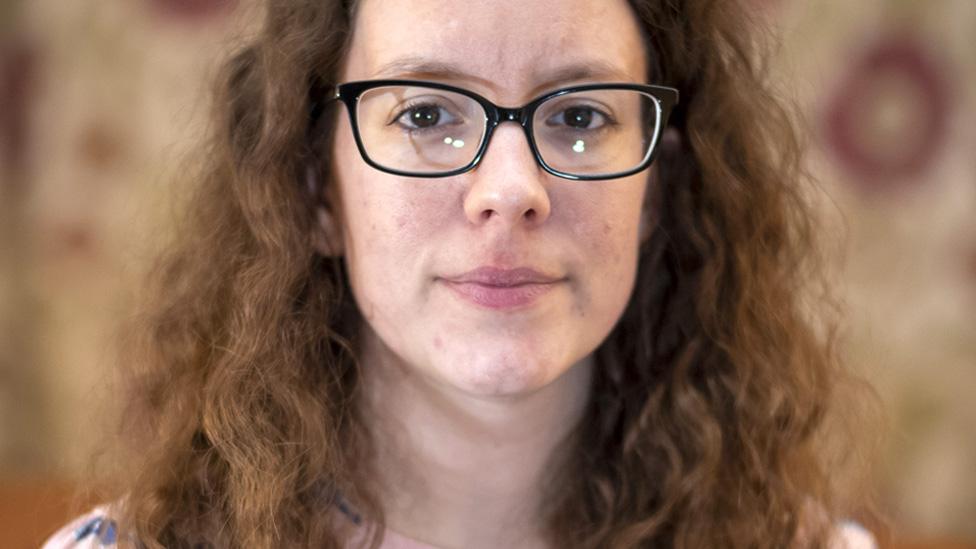Birthing mannequins introduced in maternity care overhaul
- Published
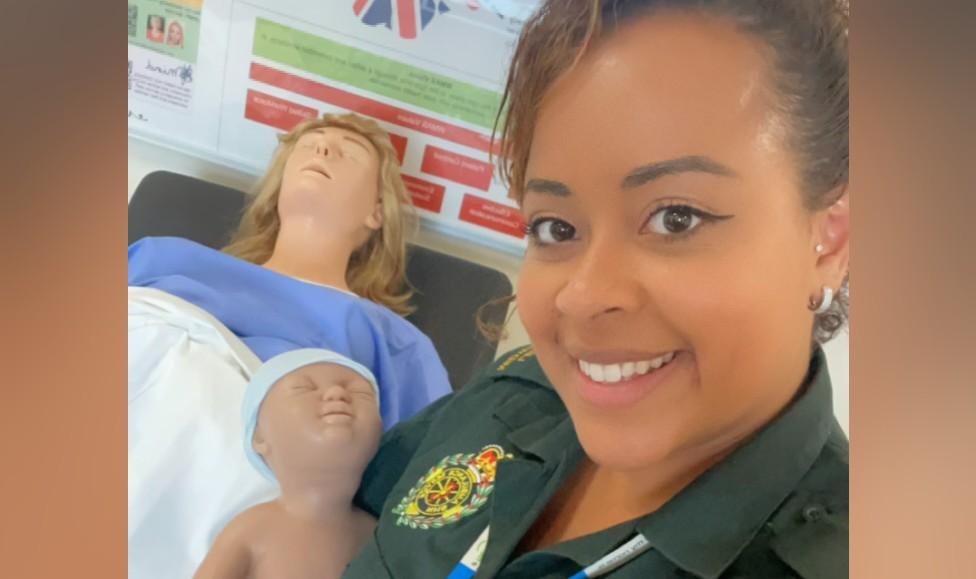
Maternity lead Steph Henry says the mannequins will help improve the confidence and competency of staff dealing with emergencies
An ambulance service has introduced five childbirth simulator mannequins to improve maternity care across the region.
They enable staff to birth a simulated baby and offer real-time monitoring of blood pressure, blood oxygen levels, respiratory rate and heart rate.
The simulators will be used by West Midlands Ambulance Service NHS Trust's (WMAS) crews.
They will be launched at a roadshow, as part of a Maternity Month initiative.
The roadshow is being hosted by the trust, which will be holding other events across the month to improve the knowledge and confidence of ambulance clinicians when providing pre-hospital maternity care.
"The mannequins are incredible pieces of equipment that will undoubtedly help improve the confidence and competency of our staff when attending obstetric emergencies," said WMAS maternity lead, Steph Henry.
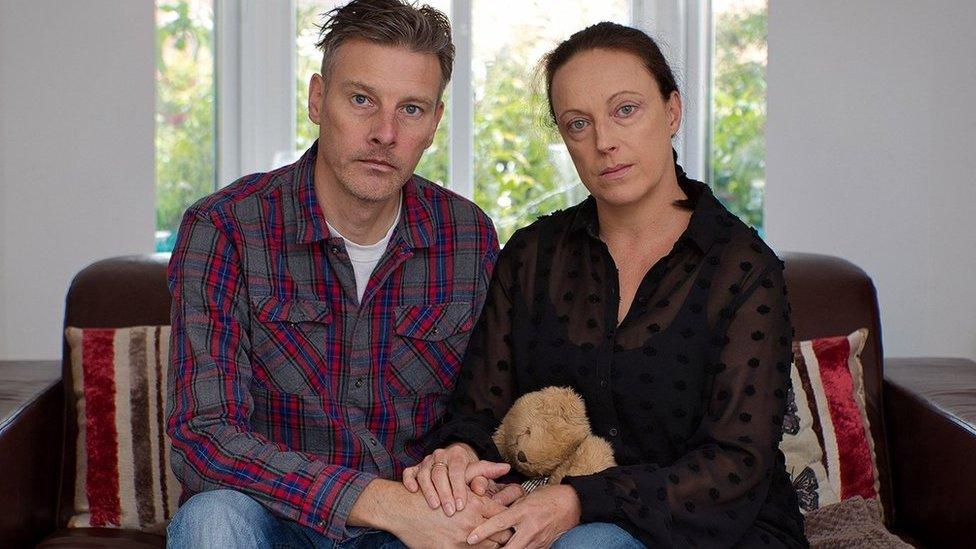
Rhiannon Davies and Richard Stanton said they are "proud" of the changes they've helped influence
WMAS launched its initiative to help boost maternity care in the region after reviewing its procedures in response to the death of newborn Kate Stanton-Davies, at a different trust in 2009.
Kate died in hospital six hours after her birth.
Although her death was not linked to the ambulance service, WMAS said it wanted to improve its procedures in supporting expectant mothers in its care.
It consulted Kate's parents, Rhiannon Davies and Richard Stanton, to learn more about what could have been done to save her.
One of its initiative is to introduce maternity champions at each of its hubs to increase the quality and number of maternity training sessions available.
'Take our ideas forward'
Others aspects include introducing cuddle pockets for the safe transportation of miscarried babies and trans-warmer mattresses in ambulances, to help reduce the number of babies born before arriving at hospital developing hypothermia.
Following consultation by WMAS' chief executive Anthony Marsh, Ms Davies and Mr Stanton said: "Although WMAS' actions were in no way contributory to Kate's avoidable death, [Mr Marsh] was genuinely appalled at what had befallen us as a family and wanted to learn all lessons he possibly could to ensure no other family went what we went through.
"Mr Marsh has continued to listen to us, to engage with us, to take our ideas forward and advance the care his paramedics are able to offer.
"We are proud of each of the changes we have influenced on behalf of Kate. And we are equally proud of the entire WMAS family for being committed to advancing their learning and for the continuous improvements they just keep on making."

Follow BBC West Midlands on Facebook, external, X, external and Instagram, external. Send your story ideas to: newsonline.westmidlands@bbc.co.uk, external
- Published7 October 2023
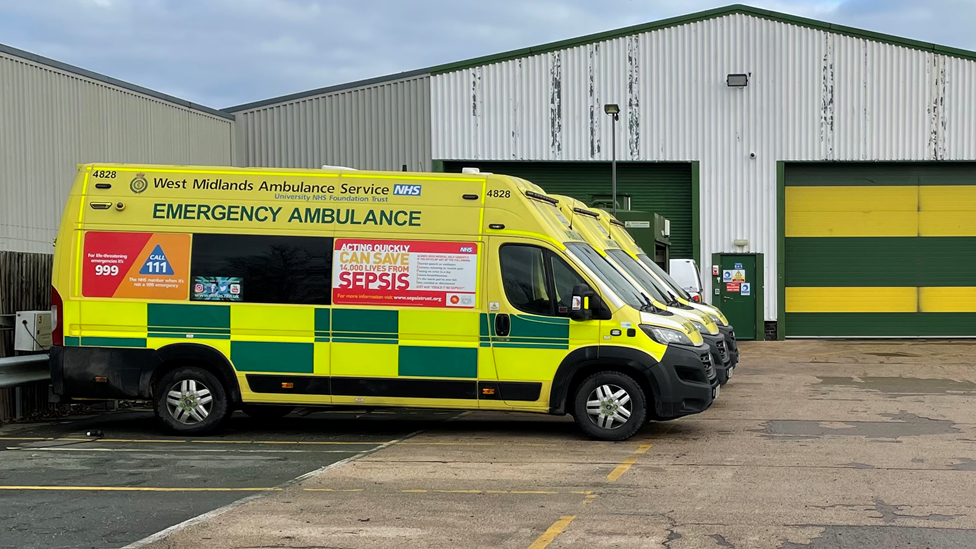
- Published28 June 2023
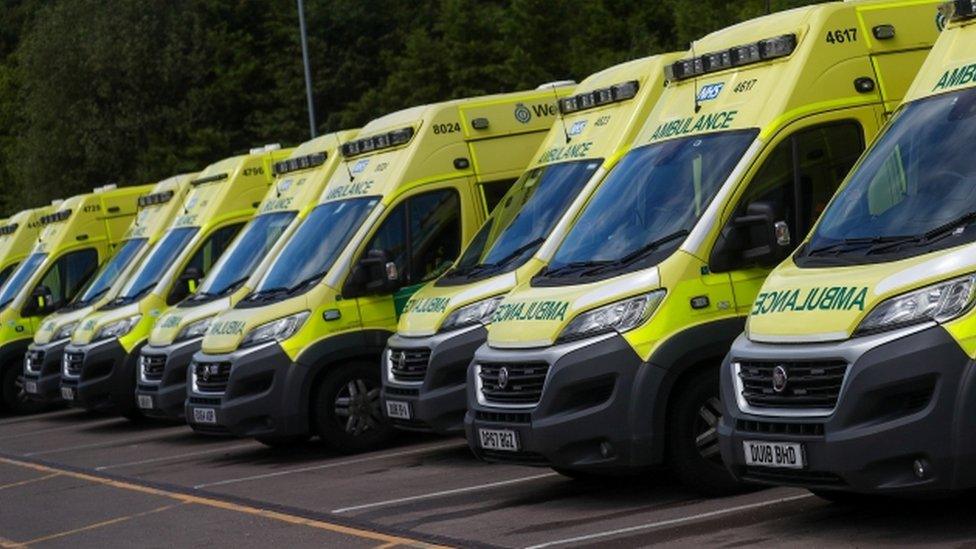
- Published29 June 2023
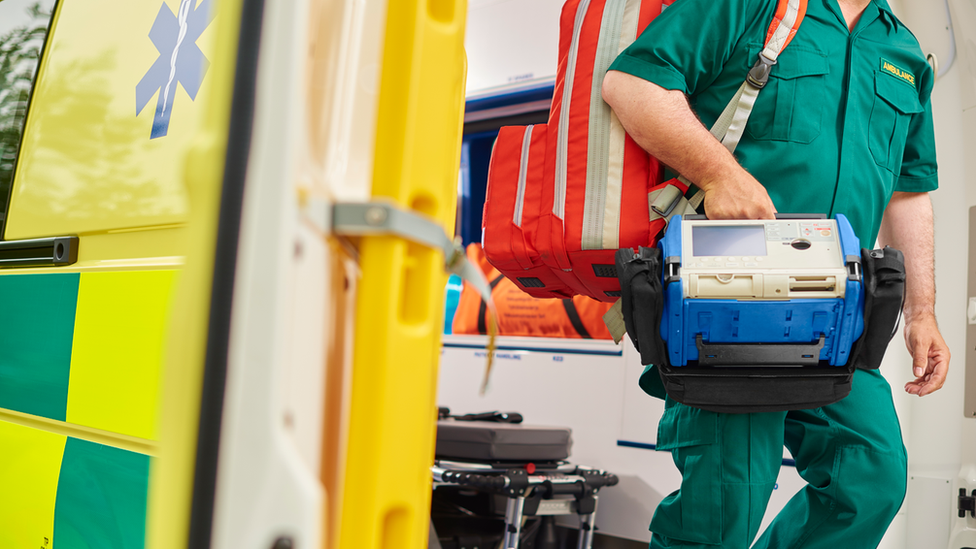
- Published30 March 2022
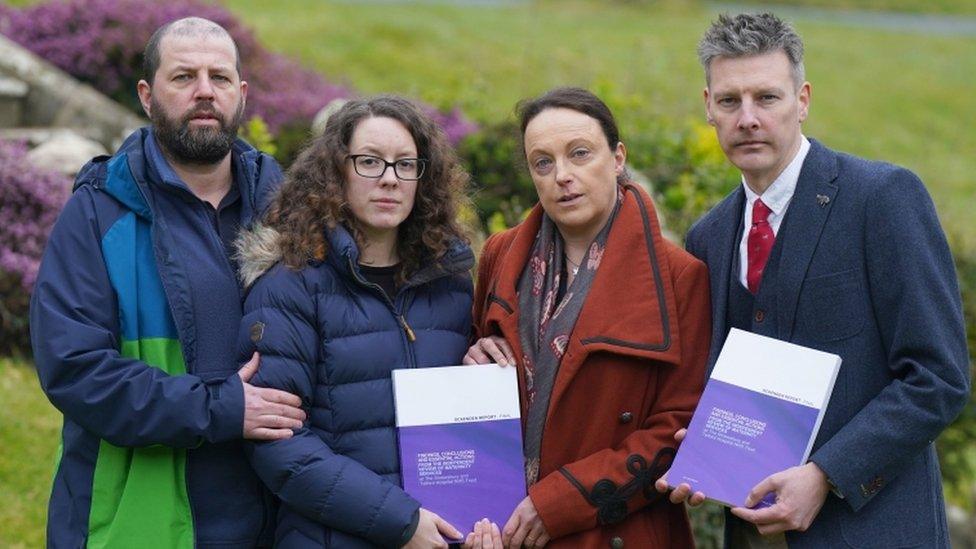
- Published23 February 2022
